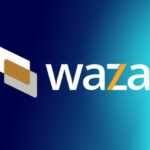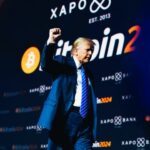Nigerians will soon pay more for phone calls, data, and SMS services following the Nigerian Communications Commission’s (NCC) approval of a 50% tariff increase. This decision, announced on Monday, will raise the minimum call rate to N9.60 per minute from the current N6.40, while the maximum rate is set at N50 per minute. The price of SMS will rise from N4 to N6, and the cost of 1GB of data will jump to N431.25 from N287.50. On average, phone calls will now cost N16.50 per minute, up from N11.
According to a statement signed by Reuben Muoka, NCC’s Director of Public Affairs, the adjustment—capped at a 50% increase—was considered a balanced approach compared to the over 100% hike initially requested by telecom operators. The commission explained that the decision took into account ongoing industry reforms aimed at ensuring the long-term sustainability of the sector.
Operators Have Long Sought Tariff Increases
The NCC’s announcement follows years of pressure from telecom operators who have struggled with rising operational expenses. Since 2013, telecom tariffs have remained unchanged despite a sharp increase in costs, exacerbated by a 300% surge in operating expenses due to factors such as inflation and currency depreciation. The sector reported significant financial strain in 2023, further driving their call for higher tariffs.
“The decision to adjust rates is necessary to close the gap between current tariffs and operational expenses, ensuring that telecom services remain viable,” the NCC explained. It emphasized that the adjustments would align with the 2013 Cost Study framework and comply with the 2024 Tariff Simplification Guidelines.
Investments in Infrastructure and Service Quality
Telecom operators have assured customers that the higher tariffs will be accompanied by increased investment in network infrastructure to improve service delivery. Between January and September 2024, MTN Nigeria’s capital expenditure declined by 27.79% to N217.64 billion, while Airtel Nigeria’s spending fell by 36.59% to $149 million.

MTN Nigeria’s CEO, Karl Toriola, highlighted that the tariff increase would provide much-needed confidence to investors and pave the way for industry sustainability. “This increase strikes a balance between raising tariffs and continuing our investment in improving network quality, enhancing services, and delivering a better customer experience,” he said.
Airtel Nigeria’s CEO, Dinesh Balsingh, echoed this sentiment, stressing the need for continuous upgrades to meet the growing demand for digital services in sectors like education, banking, and healthcare.
Consumers Face Higher Costs Amid Economic Challenges
While the NCC argues that the tariff adjustment is in the public’s interest, consumers are bracing for the financial impact. With inflation hitting a record 34.8% in December 2024, many Nigerians are already struggling with shrinking disposable incomes.
The National Association of Telecom Subscribers (NATCOMS) has criticized the hike, arguing that it places an additional burden on consumers already grappling with economic difficulties. “This increase contradicts the NCC’s claim that the new rates are in the public interest,” NATCOMS stated.
Despite the backlash, the NCC insists that the tariff review is necessary to ensure continued investment in the telecom sector, which remains critical to Nigeria’s digital transformation and economic growth.


